Though American dissidents are often branded as “anti-American,” many if not most see themselves as opposed only to their government, not their nation or people. At the Occupy camps, for example, the American flag flew freely.
In Germany, however, the dissident crowd are often not just against the state, but their country and, perhaps only subconsciously, even their heritage. Many openly advocate for the dissolution of Germany. Even if this is only youthful, nihilistic posturing, it’s pervasiveness is telling.
In Leipzig, I’ve encountered this sticker several times, “NO NATION / FIGHT LAW & ORDER / NO BORDER.” All over town, there are versions of the same message, “NO ♥ FOR DEUTSCHLAND / REFUGEES WELCOME” on a bed sheet banner, “MOVE AGAINST STATE AND CAPITAL. NO PEACE WITH GERMANY!” “Germany, you lousy Piece of Shit!” “NO MAN IS ILLEGAL / RIGHT OF RESIDENCE / ANYWHERE.” Taken to its natural conclusion, a billion Chinese can move into Germany tomorrow if they so choose.
Holding a bicycle over his head, a man is ready bring it down on his already bloody victim, lying on the ground. The caption to this lovely sticker? In English, “GOOD NIGHT WHITE PRIDE.”
More astonishingly, there’s this in five-foot tall letters on an otherwise handsome building, “I ♥ VOLKSTOD!! FIGHT THE POLICE.” “Volk” is both nation and people, for no matter how borders are shifted, the nation survives through its people. Even without a homeland, Palestinians can still count themselves as a nation, for example, as long their collective identity remains. Granted, the above death wish for nation and people, I spotted in Connewitz, Leipzig’s hotbed for young radicals, or at least those who dig piercings, tattoos, dreadlocks and graffiti. Similar expressions of self-hatred are by no mean unusual in contemporary Germany, however.
Perhaps heeding the call for a more colorful Germany [bunte Deutschland], Connewitz’s malcontents have thoroughly marred their own neighborhood with messy spray paint, and even gorgeous, brand new buildings are not spared. These neo-punks are no Jean Michel Basquiat’s, that’s for sure, not that I prefer SAMO on walls instead of canvas. Just about every other part of town is also defaced, if not to the same degree.

Punitively flattened at the end of World War II and shamed for 70 years now, many Germans seem to welcome their ongoing erasure as an unending atonement. Japan doesn’t subject itself to such self-flagellation or, for that matter, Russia, whose Red Army committed widespread atrocities on subjugated peoples. In Dresden, I saw a sticker that showed a red flag over the razed city, with this caption, “8 May 1945 / DAY OF LIBERATION / OUR THANKS GO TO ALL THE ALLIED ORGANIZATIONS, PARTISANS AND RESISTANCE FIGHTERS.” Germany had to have Nazism bombed or raped out of them, according to this thinking, so vielen dank to those who chopped her in half and deformed her until this day.
From across the Elbe, Dresden’s famous skyline seems unchanged, but close-up, you can see that most of the stones of its landmark buildings are clearly new. The damaged lesser edifices were never restored. Many are replaced by ugly, Communist-era structures. Now, it’s claimed that only 25,000 civilians were annihilated when Dresden was flattened by American and British bombers, but many people, not just Germans, think the death count must be many times higher. Still lovely, Dresden was once painted by Canaletto.
In the popular mind, Nazism is seen in a vacuum. It’s as if there was no Treaty of Versailles that bankrupted and ultimately starved Germany. It’s as if your average German is, at best, a latent Nazi whose sinister tendencies will flare up if not constantly kept in check. As is, the word “Nazi” itself is ubiquitous in Germany but, ironically, it’s bandied about most liberally by those on the left, for you can hardly walk a few blocks without encountering stickers or flyers denouncing Nazis.
In 1990, a huge Berlin march against nationalism and racism featured on its leading banner a line from Paul Celan, “Der Tod ist ein Meister aus Deutschland.” Death is a master from Germany. Nationalism is conflated with death, and that’s why all guilt-racked Germans must fight against it, but the absence of nationalism is also death. It is the drawn-out death of Germany.
A 2014 Gallup poll asked citizens of 65 countries, “Would you be willing to fight for your country?” Nations with the highest percentage saying yes were Morocco (94%), Fiji (94%), Pakistan (89%), Vietnam (89%) and Bangladesh (86%). Forty-four percent of Americans declared yes. Japan (11%) came in dead last, and Germany (18%) is third from the bottom. The two countries with the fiercest martial spirit from the last century have been pacified, and perhaps wussified, and that’s why one hears of young Japanese men who spend all day, literally, in their childhood room playing video games and looking at porn, and grown men who have cute, wide-eyed little dolls as girlfriends. Some go to brothels only to get it on with sex dolls. Obviously, men who fear real flesh and blood can’t be soldiers.
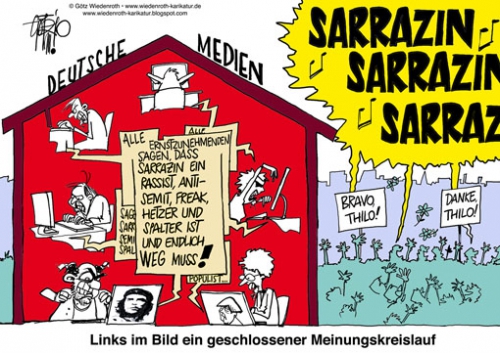
Yes, many Germans will cheer their unwillingness to fight as welcomed proof that Nazism has been mostly purged out of them. Germany is still a purveyor of mass death, however, through its promiscuous arms sales to Israel and, more recently, Saudi Arabia and Qatar. Along with the USA, those are the countries behind the continuing butchery in Syria.
Wandering around Leipzig and Dresden, I see plenty of slogans denouncing Fascism, Nazism, sexism, antisemitism, and homophobia, but no mention of Germany’s complicity in the Syrian War. The incessant discussion in the German media about the refugee crisis also sidesteps this gross, bloody stain on the country’s conscience. Fighting its master’s war, Germany lost 54 soldiers in Afghanistan, but with its passive allegiance to Washington’s scheme against Russia and Syria, Germany is running the risk of losing so much more, perhaps even itself.
In the past week alone, we have Berlin deciding to house 3,000 refugees in Langenlohnsheim, a village of 4,000. Neither its mayor nor citizens were consulted. At a town hall meeting in Lohfelden, official Walter Lübcke told citizens that if they didn’t like the huge influx of refugees into their district, they should just leave. “Who is against the values here can always leave the country. That is the right of every good German.” This country of 80.62 million people will accept 1.5 million refugees this year, and this was decided on without any input from its citizens. Next year, who knows how many millions will be welcomed by NSA-bugged Merkel. What’s in her closet, I wonder? To protect her own career, Merkel must obey her master.
As long as you have war, you will have refugees, and since it doesn’t look like the USA, with Germany and others in tow, is about to cease causing mass chaos and carnage, this refugee crisis is just beginning. When ordinary Germans dare to challenge Berlin’s diktats, however, they risk being branded as Nazis, Rechtsextreme, braune Esoteriker, Altnazis, Pack, Dunkeldeutschland, Faschisten, Neonazis, or Neofaschisten, etc.
Just as with Germany’s self-destructive fealty to the US and Israel, there is no frank discussion here about its refugee policies. Those with questions or grievances, then, are forced to become increasingly strident as they scream from the fringe. Brushed aside and demonized, they might just become the hysterical berserkers they’re already caricatured as. Should xenophobic outbursts explode down the line, they can be traced back to this initial suppression of dialogue.
Since nationalism has become a dirty word among the German left and middle, only anti-immigration groups such as PEGIDA, LEGIDA, and KAGIDA can evoke this most basic of concepts without apologies. At an August 31st rally in Leipzig, LEGIDA invited a black African to address the crowd. Son of a Cameroonian diplomat, Ferdinand was born in Germany, and he has studied here.
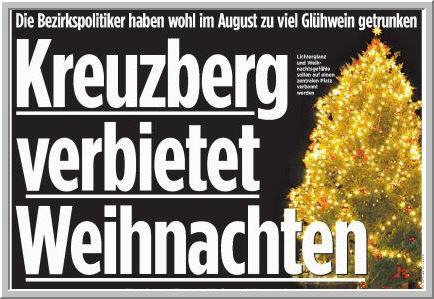
Speaking without notes, Ferdinand finished with, “In Germany one has to talk about resurrection, because the German people aren’t asleep—the German people are dead. And when you are dead, you need a ghost, some power to reanimate the corpse or resurrect it […] We want a particular force, and this force, which will cause the people to resurrect, is patriotism.
“Without patriotism you cannot accomplish anything. However, with patriotism you can develop talents [and] this hero inside of each and every one of us can be activated. With patriotism, you can move mountains. With patriotism you can move, shake lakes—because I’m a patriot. This is a matter from the heart; it has nothing to do with your head. One has to be a patriot. You Fascists, you have to be patriots. You have to love your country. That’s my message today. Thank you.”
I suspect that most contemporary Germans would dismiss Ferdinand as a raving, rightwing simpleton. Nationalism, though, is judged by Elias Canetti as a primal force that gives meaning and purpose not just to each community, each nation, but to each individual, “We can take it for granted that no member of a nation ever sees himself as alone. As soon as he is named, or names himself, something more comprehensive moves into his consciousness, a larger unit to which he feels himself to be related.”
Since no two peoples see themselves as identical, there is no universal concept of nationalism, but a “crowd symbol” that galvanizes each nation. In times of war, this self-definition becomes akin to a religion.
Regarding the Germans, Elias Canetti observes, “The crowd symbol of the Germans was the army. But the army was more than just the army; it was the marching forest. In no other modern country has the forest-feeling remained as alive as it has in Germany. The parallel rigidity of the upright trees and their density and number fill the heart of the German with a deep and mysterious delight. To this day he loves to go deep into the forest where his forefathers lived; he feels at one with the trees.
“Their orderly separation and the stress on the vertical distinguish this forest from the tropical kind where creepers grow in all directions. In tropical forests the eye loses itself in the foreground; there is a chaotic and unarticulated mass of growth, full of colour and life, which effectively precludes any sensation of order, or even of repetition. The forests of the temperate zone, on the other hand, have a conspicuous rhythm. The eye moves along lines of clearly visible trees into a uniform distance. Each individual tree is always taller than a man and goes on growing until it becomes a giant. Its steadfastness has much in common with the same virtue in a warrior. In a single tree the bark resembles a coat of mail; in a whole forest, where there are many trees of the same kind growing together, it suggests rather the uniforms of an army. For the German, without his being clearly aware of it, army and forest transfused each other in every possible way. What to others might seem the army’s dreariness and barrenness kept for the German the life and glow of the forest. He was never afraid in it; he felt protected, one amongst many others. He took the rigidity and straightness of trees for his own law.
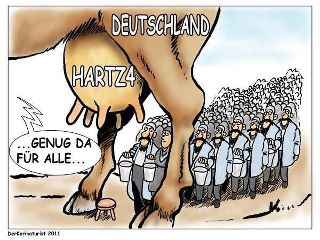 “The boy who escaped into the forest from the confinement of home, thinking to be alone there and able to dream, actually anticipated his entry into the army. In the forest he found the others waiting for him, true, faithful, and upright as he himself wanted to be; each like every other, for each grows straight, and yet quite different in height and strength. The effect of this early forest romanticism on the German must never be underrated. He absorbed it from countless poems and songs and the forest which appears in these is often called ‘German.’
“The boy who escaped into the forest from the confinement of home, thinking to be alone there and able to dream, actually anticipated his entry into the army. In the forest he found the others waiting for him, true, faithful, and upright as he himself wanted to be; each like every other, for each grows straight, and yet quite different in height and strength. The effect of this early forest romanticism on the German must never be underrated. He absorbed it from countless poems and songs and the forest which appears in these is often called ‘German.’
“The Englishman likes to imagine himself at sea, the German in a forest. It is impossible to express the difference of their national feeling more concisely.” [from Crowds and Power, as translated by Carol Stewart]
In 2015, this marching forest has been atomized into so many hand-wringing shrubs or graffiti-spraying haters of homeland. The tall, straight trees, though, are still extant, and their order, strength, and steadfastness can still serve as a guide to this hijacked nation.
Just steps from my apartment, there’s Friedenspark, Peace Park, and sure enough, you can march straight for half a mile between two rows of sheltering trees. Though only a mid-sized city park, it feels like a forest. Blocking out much sunlight, the arched foliage overhead shrouds strollers in a solemn, nave-like ambience. At the far end, there’s a magnificent church that commemorates the 22,000 Russians who died during the three-day Battle of Leipzig in 1813. Losing 54,000 men altogether, the alliance of Germans, Russians, and Poles defeated Napoleon’s invading army.
When I showed a young Leipziger the poll about fighting for one’s country, he pointed out that it’s the former colonies that are most willing to defend themselves. “But isn’t Germany also colonized?” I should have said. When will she regain her autonomy and sanity?



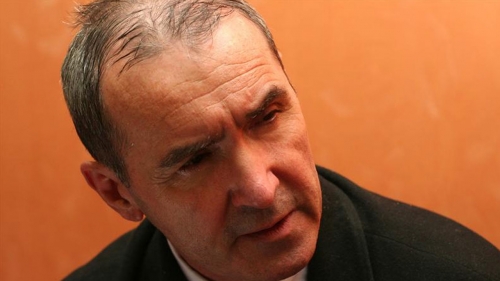
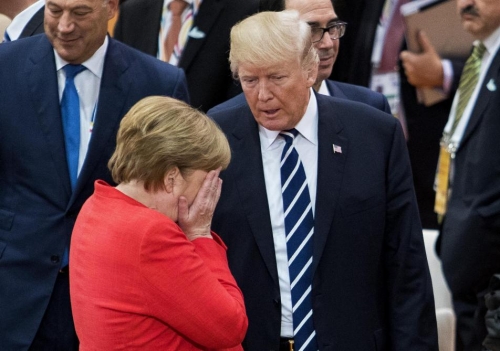
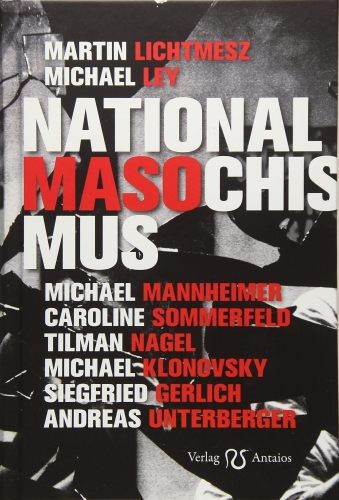
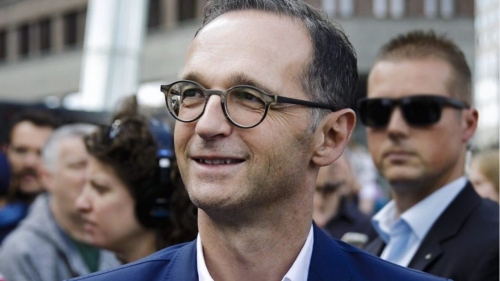
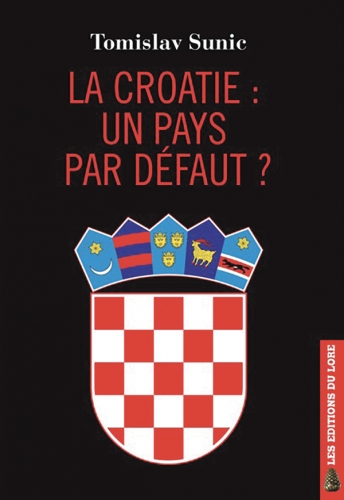

 del.icio.us
del.icio.us
 Digg
Digg